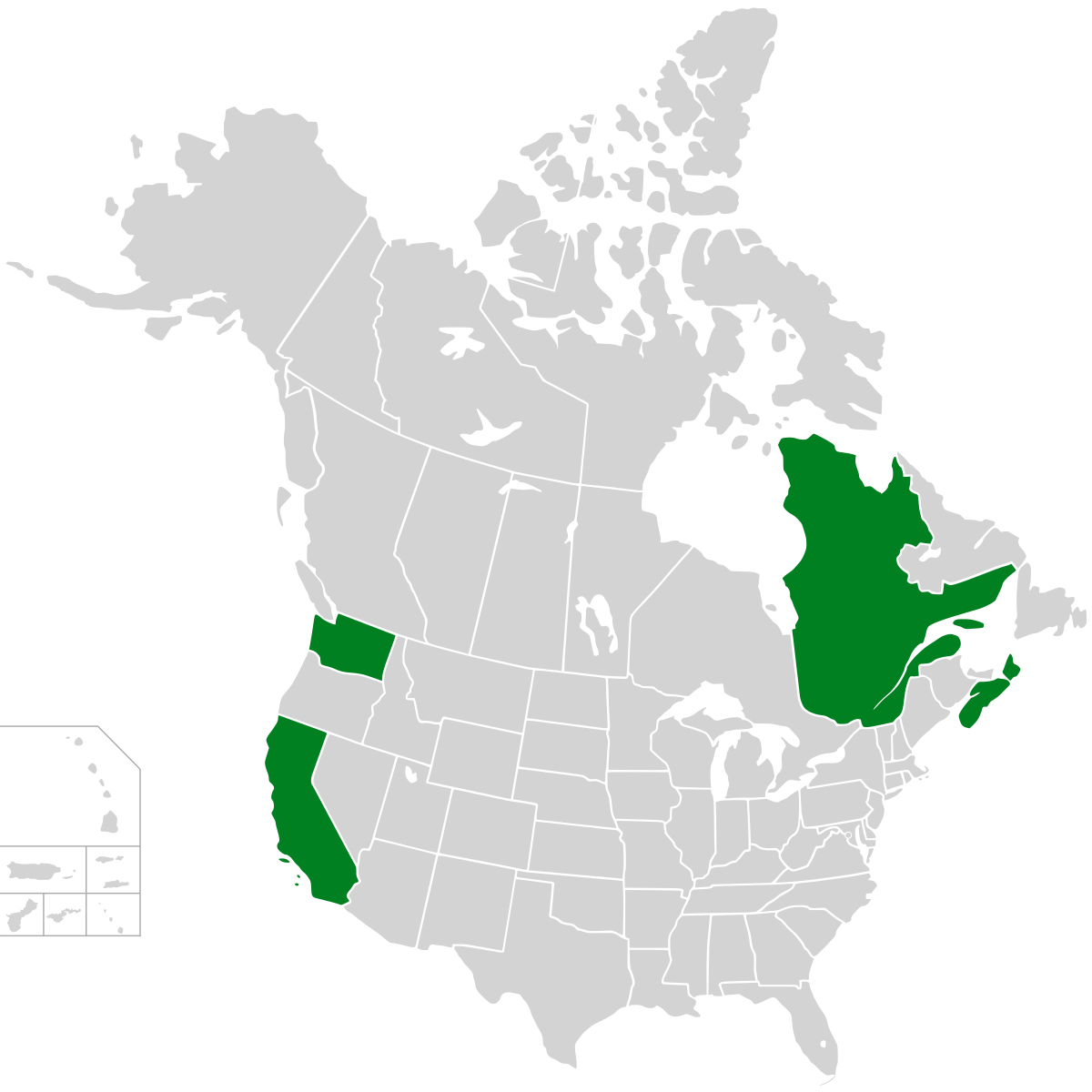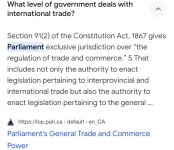Brexit Britain and Florida agree trade deal
- Thread starter Blackleaf
- Start date
You are using an out of date browser. It may not display this or other websites correctly.
You should upgrade or use an alternative browser.
You should upgrade or use an alternative browser.
The UK cannot make a "trade deal," as the term is usually understood, with a U.S. state. The conduct of foreign affairs is exclusively a Federal responsibility.
Where would the Quebec/California carbon trade market deal fall into this statement?The UK cannot make a "trade deal," as the term is usually understood, with a U.S. state. The conduct of foreign affairs is exclusively a Federal responsibility.
Apparently there’s also a Washington State/Nova Scotia Agreement that I’ve never even heard of before that slots into this.

Western Climate Initiative - Wikipedia

I ask not because it’s a “Got You” question, but because I’m way out of my element on this one, but I’m curious….as it seems like the above agreement/carbon cap&trade relationship isn’t federal but with jurisdictions a step below the state of nationhood….Except maybe Quebec, which is a “nation within a nation” or some other….something…lip service to placation or what have you?
But it’s trade between a province and other entities on a non-national level. It’s outside my limited knowledge base, but was curious to hear someone else explain how that would work, if trade deals were only on a national level.Cap and Trade quietly fell apart ages ago. Sask has trade offices around the globe. No feds involved.

Parliament's “general” trade and commerce power is both broad and narrow. It is broad because, in theory, Parliament can enact legislation that applies to all trade sectors across the country, such as with regard to competition, consumer protection and trademarks. It is narrow because Parliament must exercise its jurisdiction over trade in accordance with specific terms and conditions so that the provinces maintain their exclusive legislative authority over property and civil rights under section 92(13) of the Constitution Act, 1867.
The pizza lawyer tends to put his foot in his mouth before researching.But it’s trade between a province and other entities on a non-national level. It’s outside my limited knowledge base, but was curious to hear someone else explain how that would work, if trade deals were only on a national level.
Start local and take it from there.
Ministry of Trade and Export Development | Ministries | Government of Saskatchewan
The Ministry of Trade and Export Development advances economic growth to generate wealth and opportunity in Saskatchewan.
www.saskatchewan.ca
Or look at province/state energy import/export/sharing.
You won't find the answers on a pizza menu.
It was either worked out under the authority of the Federal government, or it's a non-binding agreement. Americans are free to talk to anybody they want, but the "foreign affairs" power belongs exclusively to the President. Only the President (under some circumstances with the advice and consent of the Senate) can bind the U.S. or any part thereof.Where would the Quebec/California carbon trade market deal fall into this statement?
Apparently there’s also a Washington State/Nova Scotia Agreement that I’ve never even heard of before that slots into this.
View attachment 20052
Western Climate Initiative - Wikipedia
en.wikipedia.org
I ask not because it’s a “Got You” question, but because I’m way out of my element on this one, but I’m curious….as it seems like the above agreement/carbon cap&trade relationship isn’t federal but with jurisdictions a step below the state of nationhood….Except maybe Quebec, which is a “nation within a nation” or some other….something…lip service to placation or what have you?